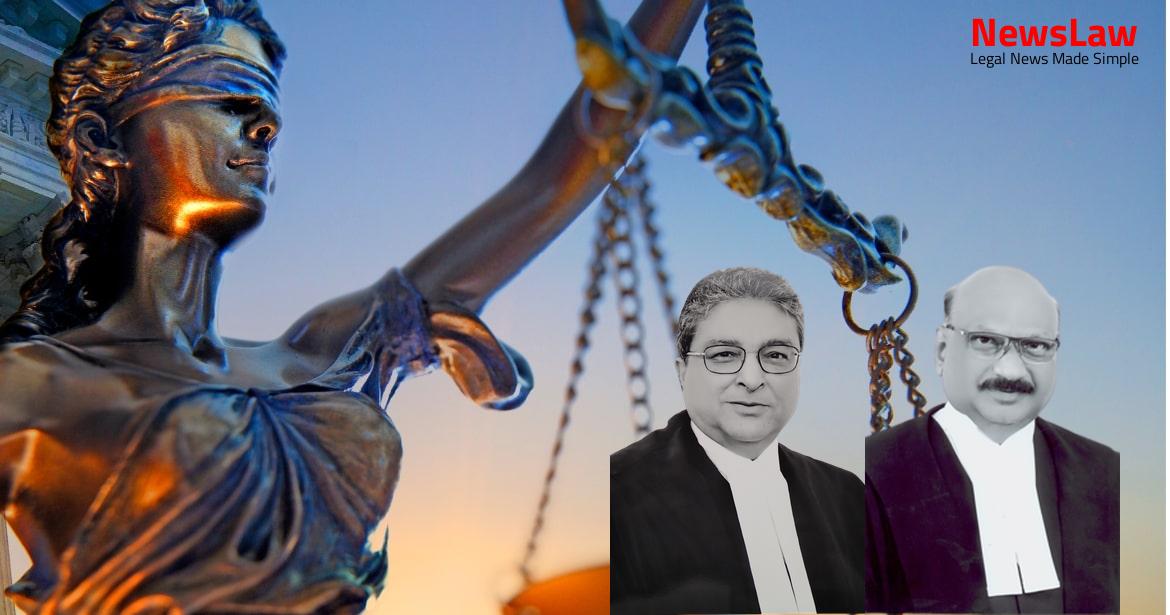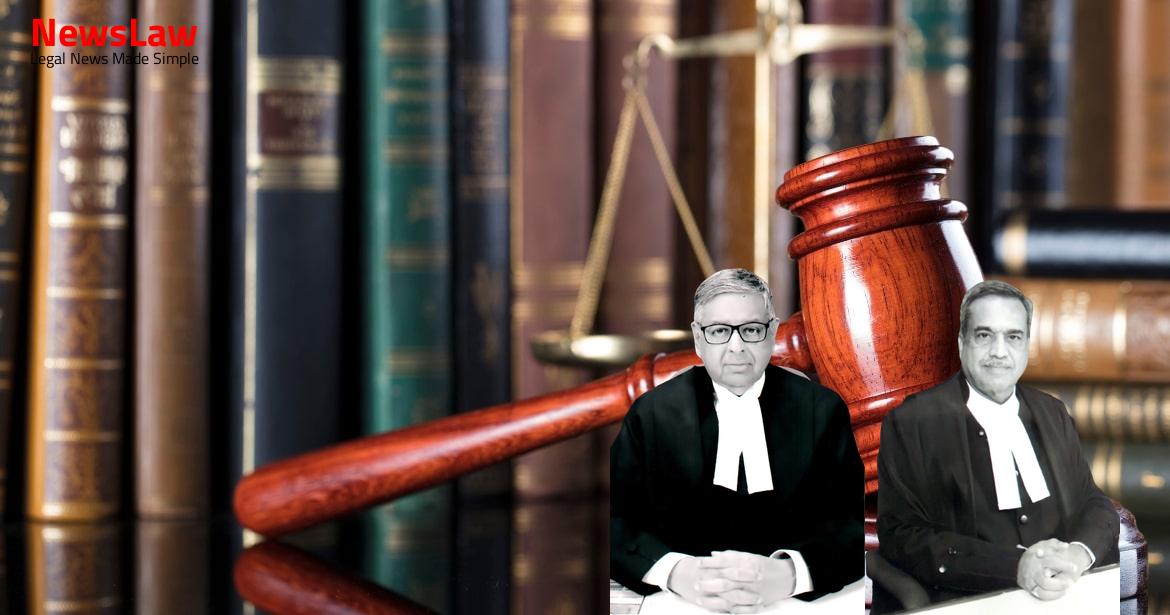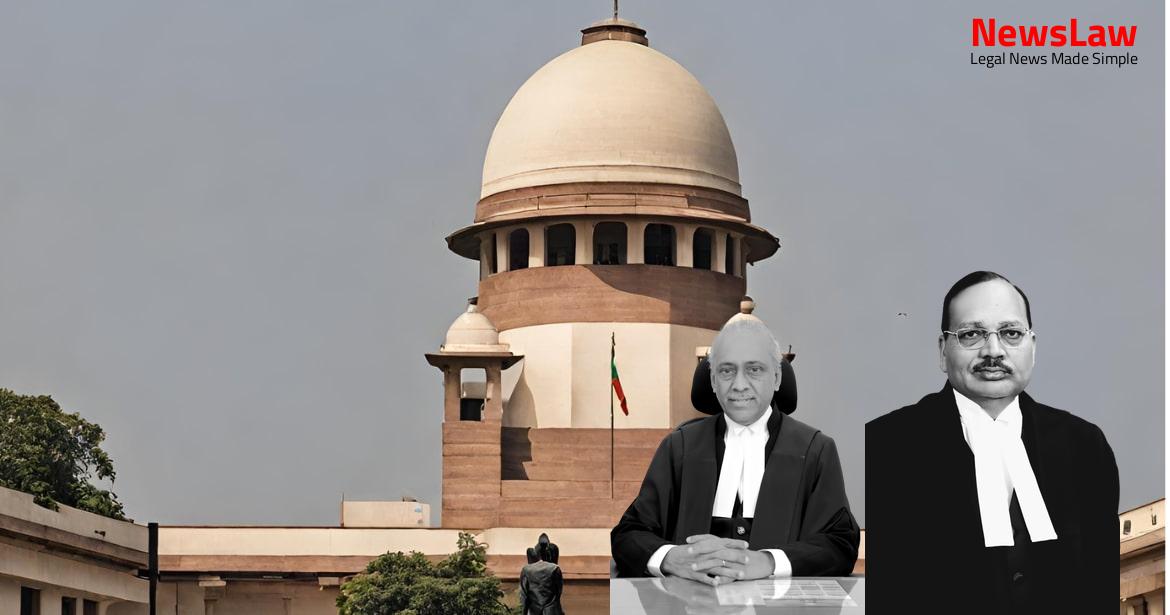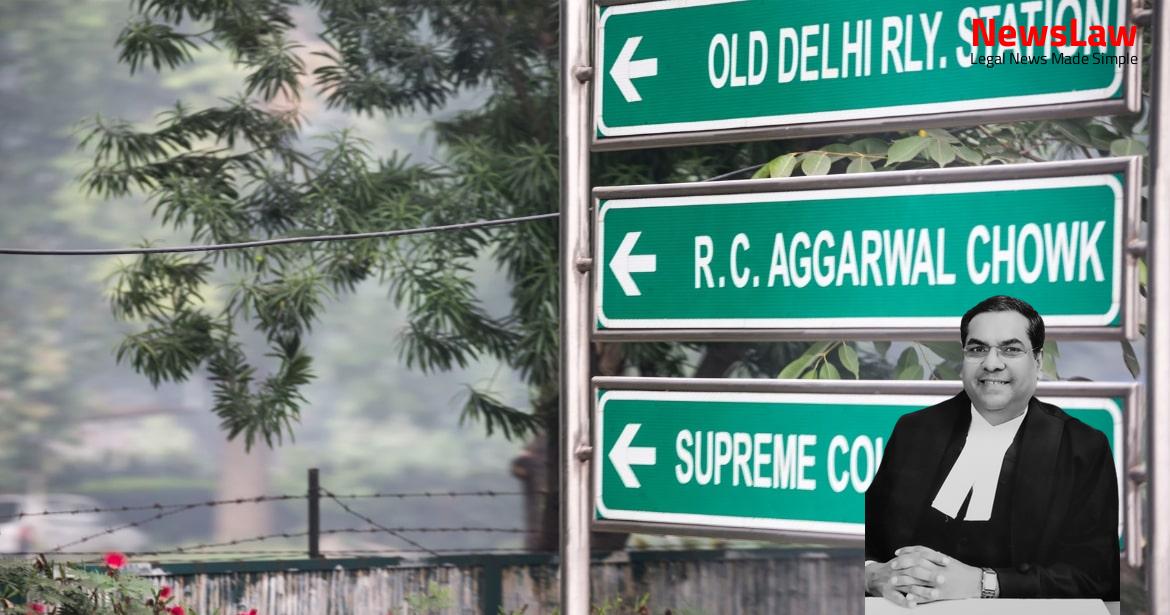Delve into the detailed legal analysis of default bail in a recent case, where the Court emphasized the significance of protecting constitutional rights and adherence to fair procedures. The case sheds light on the crucial role of the judiciary in safeguarding individual liberties and preventing abuse of legal processes, setting a precedent for upholding the rights of the accused in the face of legal complexities.
Facts
- The Court upheld the order of the High Court granting default bail to the accused in reliance upon Uday Mohanlal Acharya.
- The Magistrate was obligated to deal with the application for default bail on the day it was filed.
- The Chief Metropolitan Magistrate adjourned the application and later extended the custody and investigation period retrospectively, which was deemed untenable.
- The statutory right of the accused for default bail could not be defeated by the retrospective extension of custody and investigation.
- The accused filed a bail application under Section 167(2) of the CrPC when the investigation was not complete.
- The Trial Court granted bail to the accused, which was later cancelled by the High Court.
- The High Court reasoned that the accused could not benefit from filing the bail application first as an additional complaint was filed before the bail application was disposed of.
- The accused was arrested for offences under the NDPS Act.
- Special Judge retrospectively extended time for filing chargesheet on 3.4.2007
- Respondent filed additional complaint against Appellant during bail application hearing
- Chargesheet was filed on 26.3.2007
- Appellant filed bail application on 01.02.2019 at 10:30 a.m.
- Appellant remanded to judicial custody on 04.08.2018
- Mandatory period of 180 days for filing final report under Section 167(2), CrPC completed on 31.01.2019
- State filed application seeking extension of time under Section 49(2)(b) of POTA on 15.3.2007
Also Read: Rectification of Consent Decree in Property Dispute
Arguments
- Accused has an indefeasible right upon filing a bail application, even if release is subject to compliance with bail order.
- Delay in deciding bail application may have various reasons; no clear answer in all circumstances.
- The High Court erred in overlooking Section 167(2), CrPC provisions invoked by the Appellant after completion of 180 days.
- Additional complaint by the investigating authority cannot defeat the accused’s indefeasible right to bail under Section 167(2), CrPC.
- Counsel and magistrate should inform accused of the indefeasible right to bail.
- A distinction can be made between deliberate delay tactics by the Court and unintentional delays in deciding bail applications.
- In rare cases, accused may voluntarily forfeit bail rights due to personal security threats or other reasons.
- The right to be released on default bail can be exercised only upon actual furnishing of bail.
- If challan is filed before bail order is passed and bail bonds are furnished, the right under Section 167(2) may cease to be available to the accused.
- The right to statutory bail is not extinguished once the application for extension of time is filed.
- The opinion in Pragyna Singh Thakur that bail can only be considered on merits after the chargesheet is filed is based on an erroneous interpretation of the conclusions in Sanjay Dutt.
- The time or date of disposal of the bail application under Section 167(2) is the deciding factor for determining entitlement to default bail.
Also Read: Curbing Frivolous Litigations: Judicial Analysis
Analysis
- Magistrates should share knowledge about legal rights with underprivileged accused individuals to prevent dilatory tactics by the prosecution and uphold constitutional obligations.
- Explanation I to Section 167(2), CrPC states that accused individuals should be detained until they furnish bail, regardless of the merits of the case.
- The right to bail under the Proviso to Section 167(2) is commonly known as ‘default bail’ or ‘compulsive bail’.
- Further detention without filing a challan by the investigating agency beyond the prescribed period is a subterfuge and violates Article 21 of the Constitution.
- Section 36A of the NDPS Act extends the investigation period for certain offences under the Act to 180 days, providing additional time for more serious offences.
- The right under Section 167(2) is crucial in upholding the constitutional commitment under Article 21, protecting life and personal liberty against unlawful detention.
- The Court clarified the circumstances under which the accused can avail of their indefeasible right to default bail under Section 167(2), emphasizing prompt action by the investigative agency and the accused.
- The principle of protecting the accused’s rights is favored in cases of ambiguity in penal statutes, ensuring a fair and reasonable procedure prior to depriving a person of liberty.
- The role of the Public Prosecutor in resisting default bail by prolonging proceedings and subsequent filing of reports to buy time was criticized as improper strategy to circumvent bail.
- The interpretation of ‘if not already availed of’ was debated in various decisions, with the Court emphasizing that the right to bail accrues the moment an application is filed, ensuring enforcement of the accused’s rights.
- The accused’s right to default bail should not be defeated by delays in decision-making processes or erroneous rejection of bail applications, as prompt exercise of the right is crucial.
- The Court cited relevant precedents and legislative intent to support the protection of the accused’s right to bail under Section 167(2) and criticized misinterpretations that could jeopardize this right.
- The Constitution Bench clarified that the indefeasible right of the accused to default bail is enforceable only prior to the filing of the challan.
- Once the challan is filed, the question of bail has to be considered with reference to the merits of the case after the filing of the challan.
- The right of the accused to be set at liberty takes precedence over the state’s right to carry on the investigation and submit a charge sheet.
- The right to default bail under Section 167(2) is an integral part of the right to personal liberty under Article 21.
- The Court cannot adopt a rigid approach in issues concerning rights under Article 21.
- The right to default bail can’t be suspended even during a pandemic situation as per a judgment in the S. Kasi v. State case.
- The expression ‘if not already availed of’ means that the accused must file an application and offer bail on being directed.
- The accused must avail of his indefeasible right by filing an application and being prepared to offer bail.
- The Court must consider the application for bail immediately if the accused has been in custody for the specified period without a charge sheet.
- The right to default bail is lost if the accused does not exercise it within the stipulated timeframe.
- The principles stated by the earlier co-ordinate Bench in Pragyna Singh Thakur, particularly in paragraphs 54 and 58 of the decision, do not state the correct position of law.
- After studying both opinions, it is concluded that the position as stated in Nirala Yadav is correct.
- Accused must apply for default bail when the right accrues to them.
- Failure to apply for default bail extinguishes the right to default bail.
- Magistrate can proceed with the case or grant further time for investigation if accused fails to apply for default bail.
- Accused may still be released on bail under other provisions of the CrPC even if default bail right is extinguished.
- Actual release of the accused from custody is contingent on the directions passed by the competent Court granting bail.
- Accused must furnish bail and comply with the terms and conditions of the bail order within the stipulated time.
Also Read: Interpretation of Insurance Policy Provisions in Liability Determination
Decision
- The impugned judgment of the High Court is set aside and the Trial Court judgment is confirmed.
- The appeal is allowed, with additional directives for the Appellant-accused.
- Apart from furnishing sureties as directed by the Trial Court, the Appellant must surrender his passport.
- The Appellant must also undertake to report to the Directorate when required for investigation purposes.
- Additionally, the Appellant must undertake not to leave Chennai city limits without permission from the Trial Court.
- The Appellant’s continued detention in custody is deemed valid to prevent absconding from the Court’s jurisdiction.
Case Title: M RAVINDRAN Vs. THE INTELLIGENCE OFFICER DIRECTORATE OF REVENUE INTELLIGENCE (2020 INSC 608)
Case Number: Crl.A. No.-000699-000699 / 2020



